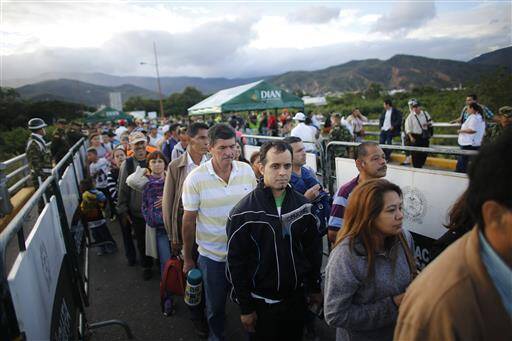Conditions in Venezuela appear to be reaching a complete breakdown as the nation’s military has taken over its ports and begun a distribution of food and other acutely needed supplies that will likely prove to be chaotic. The nation’s health care system has essentially ceased to function. That loss is especially devastating as the region confronts new outbreaks of malaria, chikungunya and Zika.
Multinational consumer-goods producers and banks are closing up shop. The only response from President Nicolás Maduro, who increasingly appears out of touch with the gravity of the national crisis, is to spout socialist bromides and threaten to nationalize more factories. That last “fix” will probably only accelerate the national collapse. Ultimately, however, the source of Venezuela’s immiseration is not hard to discern. Tumbling oil prices have devastated the oil-dependent economy. If a recovery in the oil market is the only way Venezuela can emerge from this crisis, then there is no end in sight to the suffering average Venezuelans will be forced to endure.
The local church has repeatedly locked horns with President Maduro, demanding that he allow Caritas Venezuela to move humanitarian aid, especially medical supplies, into the country as conditions worsen. Though Venezuelans have many reasons to view “foreign interference” with skepticism, in this critical moment it is time for the Maduro government to swallow nationalist pride and acknowledge that his government needs to accept a humanitarian response. The Organization of American States, the Obama administration and Caritas Venezuela are standing by. The president needs only to welcome their assistance.








